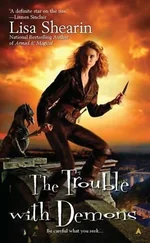‘We’re going to make sure everyone is safe. We’re going to bring Mrs Creasy back.’
‘How are we going to do that?’
‘We’re going to look for God,’ I said.
‘We are?’
‘Yes,’ I said, ‘we are. Right here on this avenue. And I’m not giving up until we find Him.’
I held out my hand. She took it and I pulled her up next to me.
‘Okay, Gracie,’ she said.
And she put her sou’wester back on and smiled.
Number Six, The Avenue
27 June 1976
It was Are You Being Served? on a Monday, The Good Life on a Tuesday, and The Generation Game on a Saturday. Although for the life of her, Dorothy couldn’t see what people found funny about Bruce Forsyth.
She tried to remember them, like a test, as she did the washing-up. It took her mind off the church hall, and the look on John Creasy’s face, and the spidery feeling in her chest.
Monday, Tuesday, Saturday. She usually liked washing up. She liked to watch the garden and idle her mind, but today the weight of the heat pressed against the glass and made her feel as though she were looking out from a giant oven.
Monday, Tuesday, Saturday.
She could still remember, although she wasn’t taking any chances. They were all circled in the Radio Times .
Harold became very irritable if she asked him something more than once.
Try to keep it in your head, Dorothy , he told her.
When Harold became angry, he could fill a room with his own annoyance. He could fill their sitting room, and the doctor’s surgery. He could even fill an entire supermarket.
She tried very hard to keep things in her head.
Sometimes, though, the words escaped her. They hid behind other words, or they showed a little of themselves, and then disappeared back into her mind before she had a chance to catch them.
I can’t find my … she would say, and Harold would throw choices at her like bullets. Keys? Gloves? Purse? Glasses? and it would make the word she wanted disappear even more.
Cuddly toy , she said one day, to make him laugh.
But Harold didn’t laugh. Instead, he stared at her as though she had walked into the conversation uninvited, and then he had closed the back door very quietly and started mowing the lawn. And somehow the quietness filled a room even more than the anger.
She folded the tea towel and put it on the edge of the draining board.
Harold had been quiet since they’d got back from church. He and Eric had deposited John Creasy somewhere, although Lord knows where, she hadn’t even dared ask, and he had sat down and read his newspaper in silence. He had eaten his dinner in silence, and dropped gravy down his shirt front in silence, and when she asked him if he wanted mandarin segments with Ideal milk for afterwards, he had only nodded at her.
When she put it down in front of him, he said the only sentence to come out of his mouth all afternoon. These are peaches, Dorothy .
It was happening all over again. It ran in families, she’d read it somewhere. Her mother ended up the same way, kept being found wandering the streets at six in the morning (postman, nightdress) and putting everything where it didn’t belong (slippers, breadbin). Mad as a box of frogs , Harold had called her. She was around Dorothy’s age when she first started to lose her mind, although Dorothy always thought losing your mind was such a strange phrase. As if your mind could be misplaced, like a set of house keys, or a Jack Russell terrier, as if it was more than likely your own fault for being so bloody careless.
They’d put her mother in a home within weeks. It was all very quick.
It’s for the best , Harold had said.
He’d said it each time they went to visit.
After he’d eaten his peaches, Harold had settled himself on the settee and fallen asleep, although how anyone could sleep in this heat was beyond her. He was still there now, his stomach rising and falling as he shifted in between dreams, his snoring keeping time with the kitchen clock, and plotting out the afternoon for them both.
Dorothy took the remains of their silent meal and emptied it into the pedal bin. The only problem with losing your mind was that you never lost the memories you wanted to lose. The memories you really needed left first. Her foot rested on the pedal, and she looked into the waste. No matter how many lists you wrote, and how many circles you made in the Radio Times , and no matter how much you practised the words over and over again, and tried to fool people, the only memories that didn’t leave were the ones you wish you’d never made in the first place.
She reached into the rubbish and lifted a tin out of the potato peelings. She stared at it.
‘These are peaches, Dorothy,’ she said to an empty kitchen. ‘ Peaches .’
She felt the tears before she even knew they had happened.
*
‘The problem, Dorothy, is that you think too much.’ Harold’s gaze never left the television screen. ‘It’s not healthy.’
Evening had tempered the sun, and a wash of gold folded across the living room. It drew the sideboard into a rich, dark brandy and buried itself in the pleats of the curtains.
Dorothy picked imaginary fluff from the sleeve of her cardigan. ‘It’s difficult not to think about it, Harold, under the circumstances.’
‘This is completely different. She’s a grown woman. Her and John have probably just had some kind of tiff and she’s cleared off for a bit to teach him a lesson.’
She looked over at her husband. The light from the window gave his face a faint blush of marzipan. ‘I only hope you’re right,’ she said.
‘Of course I’m right.’ His stare was still fastened to the television screen, and she watched his eyes flicker as the images changed.
It was Sale of the Century . She should have known better than to speak to Harold whilst he was occupied with Nicholas Parsons. It might have been best to try and fit the conversation into an advert break, but there were too many words and she couldn’t stop them climbing into her mouth.
‘The only thing is, I saw her. A few days before she disappeared.’ Dorothy cleared her throat, even though there was nothing to clear. ‘She was going into number eleven.’
Harold looked at her for the first time. ‘You never told me.’
‘You never asked,’ she said.
‘What was she doing going in there?’ He turned towards her, and his glasses fell from the arm of his chair. ‘What could they possibly have to say to each other?’
‘I have no idea, but it can’t be a coincidence, can it? She speaks to him, and then a few days later, she vanishes. He must have said something.’
Harold stared at the floor, and she waited for his fear to catch up with hers. In the corner, the television churned the laughter of strangers out into their living room.
‘What I don’t understand’, he said, ‘is how he could stay on the avenue, after everything that happened. He should have moved on.’
‘You can’t dictate to people where they live, Harold.’
‘He doesn’t belong here.’
‘He’s lived at number eleven all his life.’
‘But after what he did?’
‘He didn’t do anything.’ Dorothy looked at the screen to avoid Harold’s eyes. ‘They said so.’
‘I know what they said.’
She could hear him breathing. The wheeze of warm air moving through tired lungs. She waited. But he turned to the television and straightened his spine.
‘You’re just being hysterical, Dorothy. All that’s over and done with. It was ten years ago.’
‘Nine, actually,’ she said.
Читать дальше












